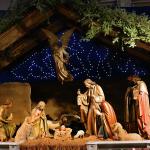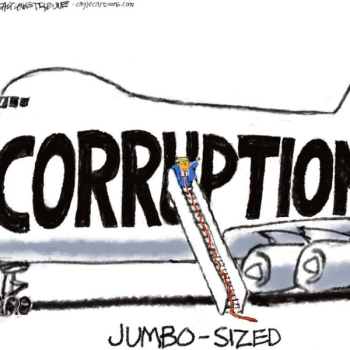Religion Decline & Public Theology
PT 3102 Religion Decline & Public Theology
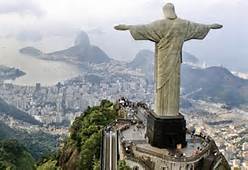
Religion decline and retreat from the public square has become obvious to everyone. Those teenagers spending a third of each day staring at their cell phones are not reading Bible stories. The financial collapse of theological education follows a dramatic drop in enrollment of seminarians. The graying of a shrinking congregational base suggests that the last generation of Christians may be on its way out.
Religion decline is multinational, but certainly not uniform. What about America specifically?[1] After reading a Pew Research, report, Patheos columnist Mike Taylor tells us that Christians continue to make up a majority of the U.S. populace, but their share of the adult population is 12 points lower in 2021 than it was in 2011.
Philip Jenkins gives Americans the frightening numbers we need. Then, he adds a forecast.
A common estimate suggests that America’s three largest constituencies today are Catholics, evangelical Protestants, and Nones, each holding around 23 percent of market share. In each successive survey, the proportion of Nones is significantly larger among young adults and millennials, presumably indicating that the proportion of Nones is destined to grow significantly in coming decades.
My own observation is that it is the cell phone that makes the difference. The internet too. “The increase of religious ‘nones’ is strongly correlated with use of new technologies.,” observes Aaron Vriesman. But, there’s more to it. Many ‘nones’ are also ‘dones’.
Christian churches are self-destructing
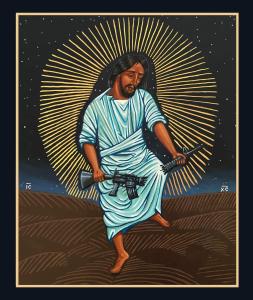
Religion decline and the slide toward none-ism are hastened by the self-destruction of evangelical, Catholic, and progressive churches within the Christian communion. The bitter snarling between ex-evangelicals and still-evangelicals over LGBTQ+ rights and so-called Christian nationalism rivals the battle between the Hatfields and the McCoys. The never-ending list of Roman Catholic priests accused of sexual abuse of altar boys leaves an unbearable stench of mistrust in the public square. And the race to liberate every new social justice claimant makes progressive Christian theology indistinguishable from the platform of the Democratic Party. Such Christian infighting is so tedious it’s no longer even newsworthy.
Fertility rates and other sociological factors are insufficient to explain the current course of religion decline. It’s the loss of faithfulness within the Christian community. At least according to Patheos columnist Henry Karlson.
“Christianity grew in the early centuries because people truly lived out their faith; they put it into practice, working for the common good. Those in need experienced the love of Christ coming to them from Christians. This has been lost today as Christianity is often seen, not as the religion of love and affirmation, but the religion of legalism and denial. Christians have truly lost the spirit of the Sermon on the Mount, and in doing so, it is no wonder Christian adherence is in the decline.”
What’s a public theologian to do? Should I worry that I will lose my job as a public systematic theologian? If there’s no longer a church to pay my salary, will I become homeless?
Well then, might a university pay my salary? No. Not if theologians get replaced by scientists.
Woe is me.
From theological reflection to the scientific study of religion
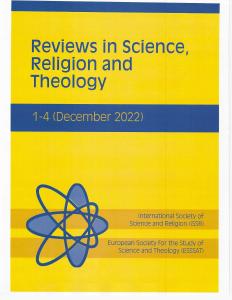
My treatment of religion decline here is prompted by reading what Luis Oviedo says in the December 2022 issue of Religion, Science, and Theology. Luis Oviedo, OFM at the Pontifical University Antonianum, edits this fine online quarterly. It is published by ISSR (International Society of Science and Religion) along with ESSSAT (European Society for the Study of Science and Theology).
According to Oviedo, one more mark of religion’s decline is the rise of interest in the scientific study of religion. Who cares any more about what the theologian thinks about religion? Science is central to public discussion, while religion has become marginalized.
So, let’s use scientific tools to treat religion objectively and dispassionately. Let’s study religion as one more chapter in the evolutionary story of Homo sapiens. Let’s ask our neuroscientists to study what happens in our brain circuitry when we believe religious doctrines. After all, describing religious believing is more important than the truth or falsity of those beliefs. Right?
The cognitive science of religion, according to Oviedo, relies on three points of departure.
- Empirical data
- Robust theorizing
- Falsifiability
Editor Oviedo himself is not sanguine about the cognitive science of religion. Yet, he presses forward. The “scientifically driven approach” can replace theology, observes Oviedo, “once we assume that this is the ideal way to gain true knowledge about a human feature or activity” (Oviedo, How to study scientifically beliefs and believing and why it matters to theology 12/2022, 5). Well, so it seems, at least.
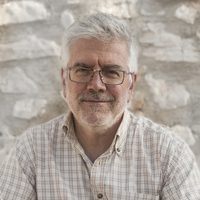
Oviedo’s own agenda is to move the needle slightly from the scientific study of believing to the scientific study of the beliefs. This nudge from the believer to what is believed just may move science back in the direction of theology. After all, studying the truth or falsity of beliefs is what has earned traditional theologians an honest living over the centuries.
“I am convinced that the study of belief offers a better framework for a rigorous and scientific analysis of the religious mind than the views developed by our colleagues in the so-called cognitive science of religion (CSR)” (Oviedo, How to study scientifically beliefs and believing and why it matters to theology 12/2022, 13).[2]
Has Oviedo saved my job as a public systematic theologian despite religion’s retreat?
“Perhaps we are just trying to heroically resist a wave that will sooner or later completely overwhelm religion and theology, but at the moment we still survive and show how religion may be still useful, and theology can become a clue to better understand our culture and society in a fine critical way. We could even say that theology offers an excellent critical sight before a social reality afflicted by so many flaws” (Oviedo, An account of the editor 12/2022, 3).
More from Luis Oviedo
Will religion’s retreat make public systematic theology obsolete?
“To help people in their struggles related to love” is a valuable contribution the public theologian can make to the common good. Still I ask: will religion decline make public systematic theology obsolete? Will I lose my vocation? Not likely. Why? Because of what God’s special revelation in Jesus Christ reveals.
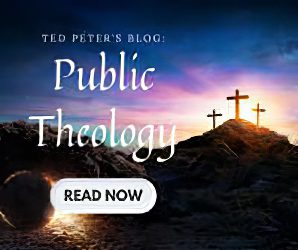 Recall how I’ve maintained that public theology is conceived in the church, critically refined in the academy, and offered to the wider culture for the sake of the global common good. Maybe even the galactic common good.[3]
Recall how I’ve maintained that public theology is conceived in the church, critically refined in the academy, and offered to the wider culture for the sake of the global common good. Maybe even the galactic common good.[3]
I’ve emphasized that the public theologian offers discourse clarification and worldview construction for the sake of the global common good (Peters 2018). Public theology is not a disguised form of evangelization or an attempt to usurp the public square for religious influence. The public theologian lifts one voice among many.
Even though the public which the public theologian addresses is primarily the wider culture, the primary source of insight is drawn from systematic theology within the church. Especially anthropology. What the theologian has learned over the centuries is that we cannot truly understand human nature without grasping the relationship we humans have with our creating and redeeming God. Reformed theologians such as John Calvin and Karl Barth, for example, contend that we first receive God’s self-revelation and then, secondly, we understand who we are in light of this relationship. Here is the way Barth puts it.
“Only when we know Jesus Christ do we really know that man is the man of sin, and what sin is, and what it means for man” (Barth 1936-1962, IV/1: §61: 389).
The fact that a clarified human self-understanding depends on divine special revelation does not in itself speak to its truth or falsity. Be that as it may, this human self-understanding is invaluable both within the church in the academy, and within the wider culture.
The persistence of original sin prompts prophetic public theology

I have just made this point: one of the key things we learn when reacting to God’s self-revelation is that we are sinners. We are always sinners. This insight puts the lie to our everyday claims—exaggerated when the claims are made by our political leaders—that we are righteous and just. This blindness to our own sinfulness seems to justify perpetrating violence against those who are allegedly unrighteous or unjust. This little mechanism which I’ve described as self-justification plus scapegoating keeps the world imprisoned in the chains of original sin.
Sin makes the world go ‘round. But the self-justified don’t know it. Among other duties, the public theologian needs to point this out in public.
This prophetic responsibility of the public theologian obtains regardless of religion decline. Regardless of the rise of the scientific study of believers’ brains. Regardless of any other aspect of religion’s retreat from public discourse.
Conclusion
Now, perhaps Luis Oviedo might refer to the church’s take on original sin as a belief. Then, one could study this belief scientifically. Yet, I ask: what help would this offer to anyone? Insights drawn from the doctrine of original sin help us only when they reveal to us just who we are, existentially speaking! God’s self-revelation precipitates your and my own personal self-revelation. God’s self-revelation uncovers the hidden truth that we are sinners in need of divine grace and human compassion. Without this particular belief, we live in error and delusion.
Even if religion decline leads to the retreat of religious institutional influence on public life or to the replacement of theology professors with science professors in university level religious studies, the public systematic theologian could still earn an honest living. How? By offering to the wider culture an insight that could only be conceived in the church where sinners understand themselves in light of God’s self-revelation as gracious. Might discourse clarification in this instance “help people in their struggles related to love”?
▓
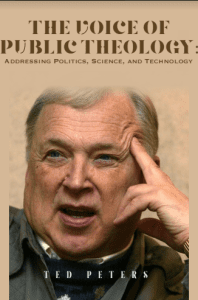 Ted Peters directs traffic at the intersection of science, religion, and ethics. Peters is an emeritus professor at the Graduate Theological Union, where he co-edits the journal, Theology and Science, with Robert John Russell on behalf of the Center for Theology and the Natural Sciences, in Berkeley, California, USA. He authored Playing God? Genetic Determinism and Human Freedom? (Routledge, 2nd ed., 2002) as well as Science, Theology, and Ethics (Ashgate 2003). Along with Martinez Hewlett, Joshua Moritz, and Robert John Russell, he co-edited, Astrotheology: Science and Theology Meet Extraterrestrial Intelligence (2018). Along with Octavio Chon Torres, Joseph Seckbach, and Russell Gordon, he co-edited, Astrobiology: Science, Ethics, and Public Policy (Scrivener 2021). He is also author of UFOs: God’s Chariots? Spirituality, Ancient Aliens, and Religious Yearnings in the Age of Extraterrestrials (Career Press New Page Books, 2014). Look for his newest book, The Voice of Public Theology, a collection of previous articles. See his website: TedsTimelyTake.com.
Ted Peters directs traffic at the intersection of science, religion, and ethics. Peters is an emeritus professor at the Graduate Theological Union, where he co-edits the journal, Theology and Science, with Robert John Russell on behalf of the Center for Theology and the Natural Sciences, in Berkeley, California, USA. He authored Playing God? Genetic Determinism and Human Freedom? (Routledge, 2nd ed., 2002) as well as Science, Theology, and Ethics (Ashgate 2003). Along with Martinez Hewlett, Joshua Moritz, and Robert John Russell, he co-edited, Astrotheology: Science and Theology Meet Extraterrestrial Intelligence (2018). Along with Octavio Chon Torres, Joseph Seckbach, and Russell Gordon, he co-edited, Astrobiology: Science, Ethics, and Public Policy (Scrivener 2021). He is also author of UFOs: God’s Chariots? Spirituality, Ancient Aliens, and Religious Yearnings in the Age of Extraterrestrials (Career Press New Page Books, 2014). Look for his newest book, The Voice of Public Theology, a collection of previous articles. See his website: TedsTimelyTake.com.
▓
[1] Lyman Stone, reporting for the American Enterprise Institute, provides helpful data plus interpretation in, “Promise and Peril: The History of American Religiosity and Its Recent Decline (April 30, 2020).
By any measure, religiosity in America is declining. …{s}ince peaking in 1960, the share of American adults attending any religious service in a typical week has fallen from 50 percent to about 35 percent, while the share claimed as members by any religious body has fallen from over 75 percent to about 62 percent. Finally, the share of Americans who self-identify or report being affiliated with any religion has fallen from over 95 percent to about 75 percent….
The present decline is striking in its speed and uniformity across different measures of religiosity. But a longer historical perspective suggests some caution in making overbold statements about what such a decline might portend. At the dawn of the American republic in the 1780s, probably just a third of Americans were members in any religious body, and just a fifth could be found at church on a given Sunday. This was a historic low ebb in American religiosity. Thus, in some important ways, America today is more religious than it was two centuries ago—and indeed at any point between 1750 and 1930.
[2] Oviedo rightly worries that the scientizing of religion risks reducing religion to what is natural. The Church’s belief, in contrast, is that we humans are more than natural. Roman Catholic giant Karl Rahner points the presence of a “supernatural existential” dimension to human self-awareness. Even prior to conferral of grace sacramentally, the human race “already stands under the universal, infralapsarian salvific will of God which comprises within its scope original sin and personal sin. Man is redeemed and is permanently the object of God’s saving care and offer of grace. He is under an absolute obligation to attain his supernatural goal….It means that man as he really exists is always and ineluctably more than mere nature” (Rahner, Supernatural Existential 1975).
[3] “A concern for the common good cannot be based in the domination or supremacy of the Christian faith,” says Baptist public theologian Jayme Reaves. “We cannot achieve common good unless we are willing to question our own power and be willing to share it with others whose voices are not heard.” Resources and persons in public theology for the common good abound. Here are some.
The Public Theology of Rudolf von Sinner
The Public Theology of Katie Day
The Public Theology of Binoy Jacob
The Public Theology of Robert Benne
The Public Theology of Paul Chung
The Drumbeat African Public Theology of Mwaambi G Mbûûi
The Public Theology of Valerie Miles-Tribble
The Public Theology of Kang Phee Seng
The Public Theology of Jennifer Hockenbery
Karen Bloomquist: Another Worldview Must Be Enacted Today
Global Network for Public Theology (GNPT)
Ebo Lectures in Theology and Public Life
Center for Theology and Public Issues, University of Otago
International Journal of Public Theology
Works Cited
Barth, Karl. 1936-1962. Church Dogmatics, 4 Volumes. Edinburgh: T&T Clark.
Oviedo, Luis. 12/2022. “An account of the editor.” Reviews in Science, Religion, and Theology 1-4.
Oviedo, Luis. 12/2022. “How to study scientifically beliefs and believing and why it matters to theology.” Reviews in Science, Religion, and Theology 5-18.
Peters, Ted. 2018. “Public Theology: Its Pastoral, Apologetic, Scientific, Politial, and Prophetic Tasks.” International Journal of Public Theology 12:2 153-177; https://brill.com/abstract/journals/ijpt/12/1/ijpt.12.issue-1.xml.
Rahner, Karl. 1975. “Supernatural Existential.” In Encyclopedia of Theology: The Concise Sacramentum Mundi, by ed Karl Rahner, 494-495. New York: Crossroad.



